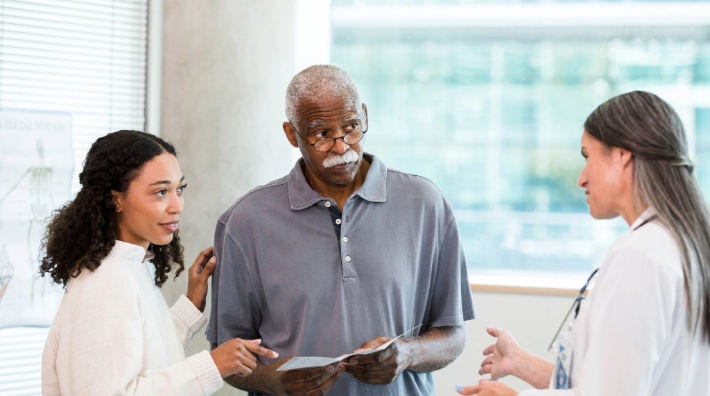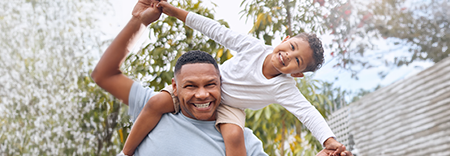Coping Strategies for Younger Adults Caring for a Parent with Cancer

Taking care of a parent with cancer is hard at any age. But when the caregiver is a young adult, it can come with unique challenges. People under 40 may find themselves in charge of caregiving while also trying to reach their own life goals.
Caregivers between the ages of 18 to 39 are likely going through major life changes. They might be finishing school, finding their independence, starting their careers, getting married, and having children. That’s a lot to juggle while caring for a sick parent.
“Younger people should know that it’s OK to feel overwhelmed. Caring for a parent with cancer can bring feelings of love, guilt, fear, and sometimes even resentment. It’s important to recognize that these emotions are normal. Seeking support doesn’t make you less strong or less committed to your parent,” said Cristiane Decat Bergerot, PhD, an American Society of Clinical Oncology (ASCO) expert and Postdoctoral Fellow at the Cancer and Aging Research Group.
“Many younger caregivers struggle with money, interrupted plans, isolation, and a deep sense of role reversal, especially if their parent was their main support,” Dr. Bergerot said. Balancing life milestones with the physical, emotional, and financial demands of caregiving can leave younger adults stretched thin.
People under 40 who care for a parent are at a high risk of caregiver burnout, anxiety, and depression. They may need to put their own goals on hold. They might also feel social isolation from being left out when friends are living very different lives. Over time, this can affect their relationships, mental health, and plans for the future.
Self-care tips for caregivers
“Caregivers often feel invisible. Even though they are essential, they’re rarely asked how they are doing. For young adult children, caregiving often involves a painful role reversal, caring for the person who once cared for them. That is different from a spouse, where caregiving might be more expected,” said Dr. Bergerot.
Dr. Bergerot offers several ideas for how to get through this difficult period. Even small acts of self-care can make a big difference. “Caregivers shouldn’t feel guilty for taking time for themselves,” said Dr. Bergerot.
Here are a few things they can do:
- Take short breaks from caregiving
- Consider sitter options or short-term respite care
- Do something physically active
- Talk to a therapist or counselor
- Write in a journal
- Plan time or events with friends
The cancer care team can provide help through social workers or patient navigators. They can help caregivers find resources like counseling, respite care, financial aid, or community programs. Young adult caregivers can also get help from support groups, online communities, employee assistance programs, and resources through school or faith-based programs.
Building connection and coping skills
Dr. Bergerot has worked with many young adults who are the primary caregiver for their parents. While caregiving can take a heavy toll on a younger adult, it can make them feel closer to their parent. Caregiving can also help younger adults build strong coping skills and a sense of purpose that can be a powerful part of their life story.
“One story that stays with me is a 26-year-old who was caring for her mother with breast cancer while finishing graduate school. She felt torn between her education goals and her guilt for not being ‘present enough.’ With counseling and peer support through her mother’s cancer center, she learned to balance both. She developed habits like setting study times, planning short breaks, and staying connected with friends. She later became a peer mentor and helped other young caregivers,” Dr. Bergerot said.
When a parent is going through cancer treatment, they may need inpatient hospital stays or many trips to an outpatient cancer clinic. They may need more than one type of treatment. Each treatment comes with its own challenges for both the parent and their young adult caregiver. Treatment and follow-up visits may be needed for a few weeks, months, or even years in some cases.
Ways to cope with grief and loss
If treatment is no longer helping or a parent with cancer decides to stop treatment, a young adult caregiver must deal with grief and loss. When a young caregiver loses a parent to cancer, going through the grieving process can make emotions feel heavier.
“Grief doesn’t follow a timeline,” Dr. Bergerot said. “I encourage young people to stay connected with friends, therapy, or support groups. Journaling, rituals to remember your parent, or volunteering for cancer-related causes can also be healing. And it’s important to revisit life goals when you’re ready, because loss often reshapes plans.”
What the research says about young adult caregivers
Studies show young adults have very different experiences as caregivers than people who become caregivers when they are older. Paying close attention to self-care is key. But the need for tailored support and resources for people at the young adult stage in life is becoming more clear. Research shows young adult caregivers often cope better when there is good communication with the cancer care team and ongoing support from family, friends, and mental health professionals.
Many experts say young adult caregivers should be seen as a unique group in cancer care, and research on this topic is growing. “Younger adult caregivers are incredibly strong, even when they don’t feel it. They deserve recognition, support, and care,” Dr. Bergerot said.
Learn more from the American Cancer Society:
- What a Cancer Caregiver Does
- Understanding the Cancer Experience When You’re a Caregiver
- Making Health Decisions as a Cancer Caregiver
- Caregiver Resource Guide
- Caregiver Support Video Series
Dr. Bergerot is a member of ASCO’s Patient Information Editorial Board.
- Written by

Written by the American Society of Clinical Oncology (ASCO) with medical and editorial review by the American Cancer Society content team.



